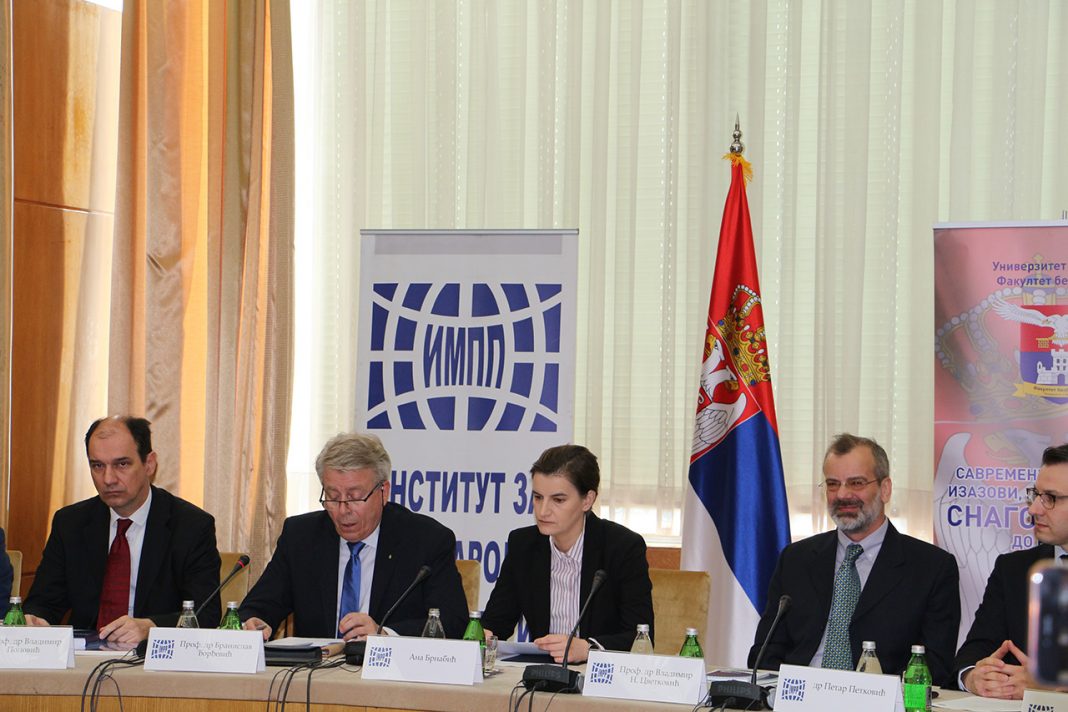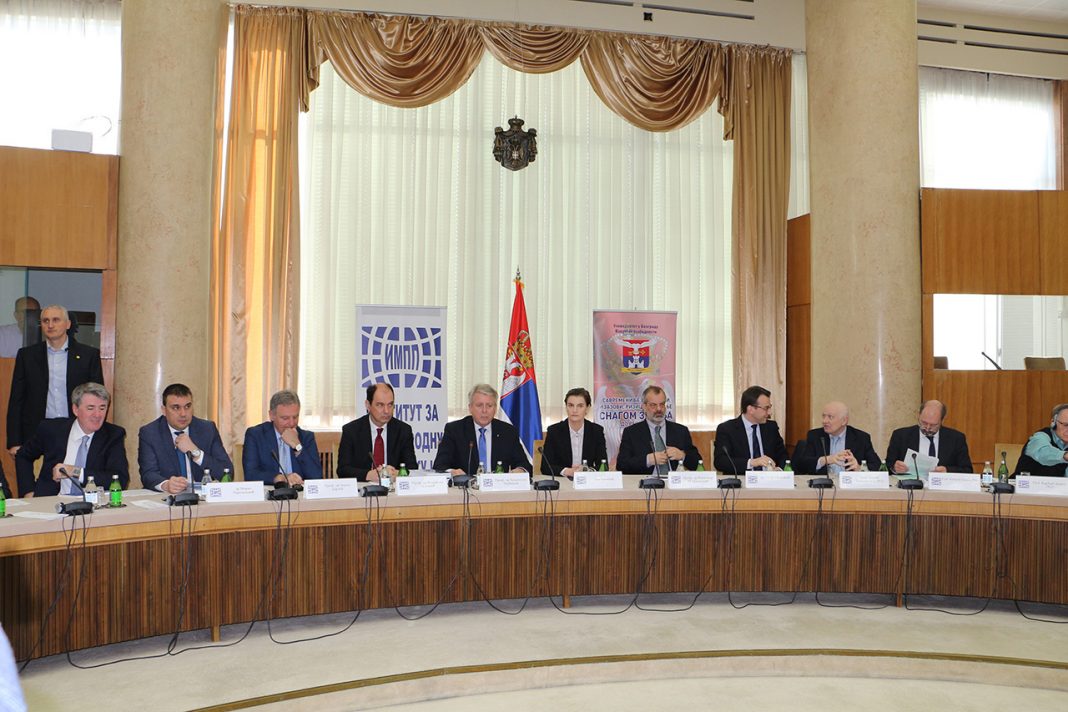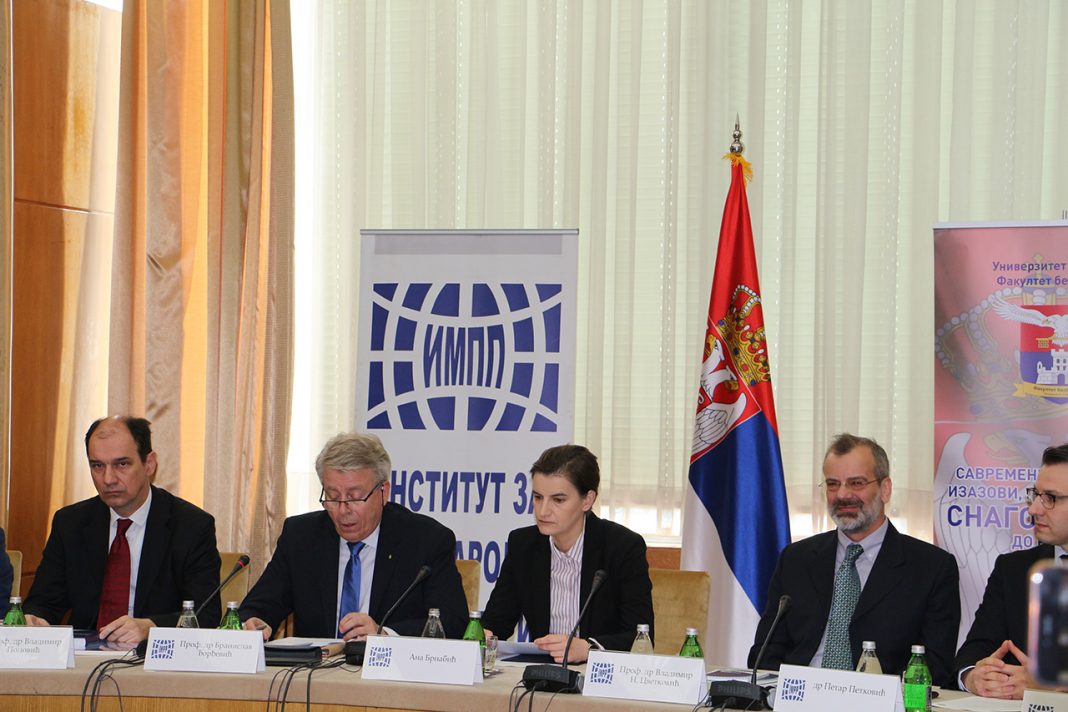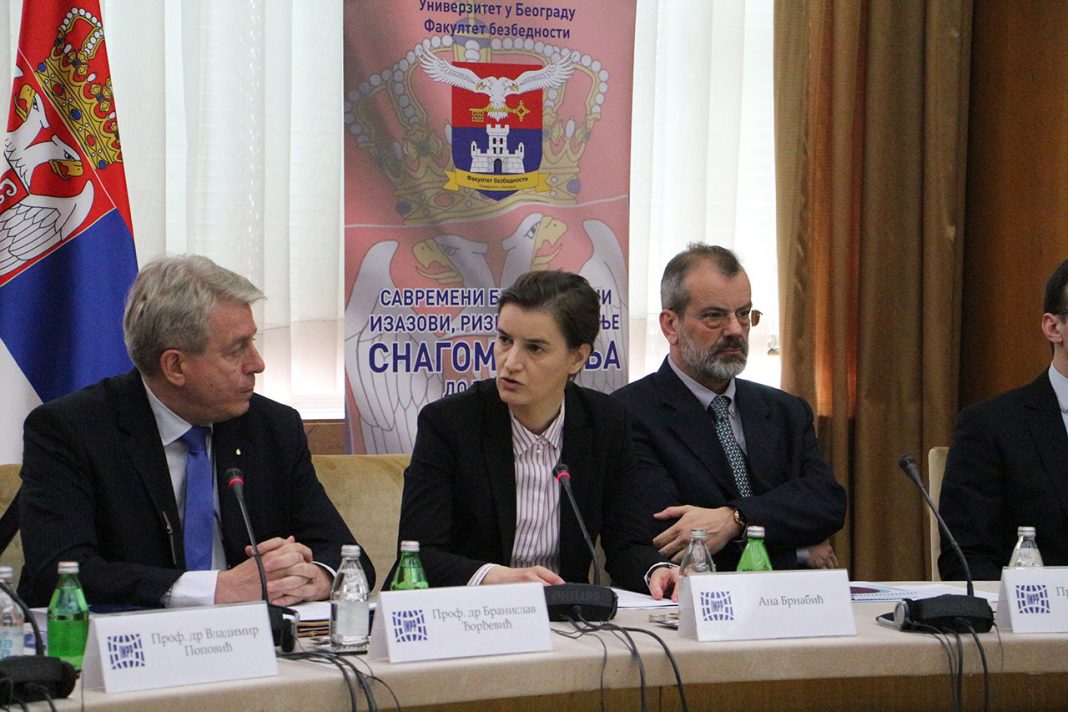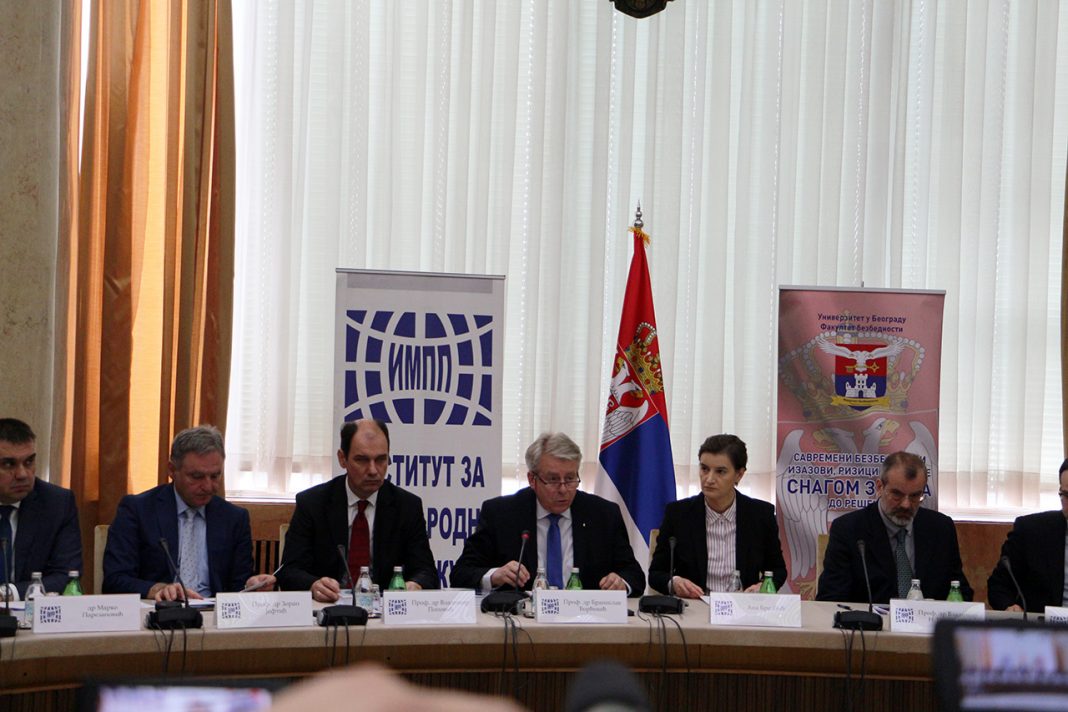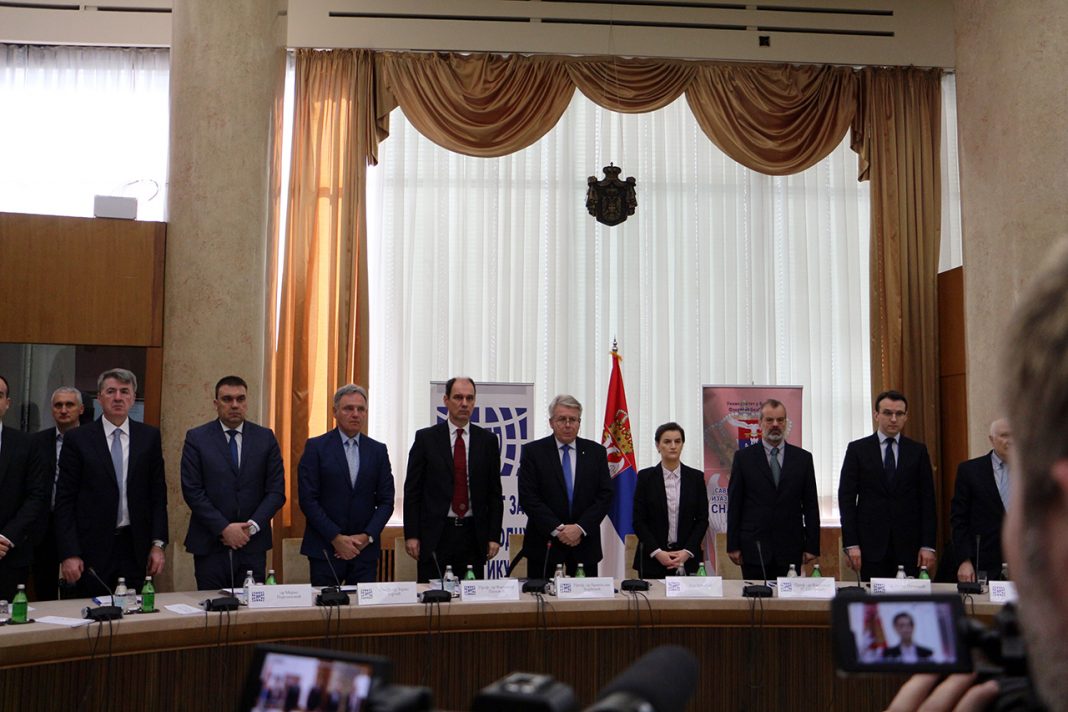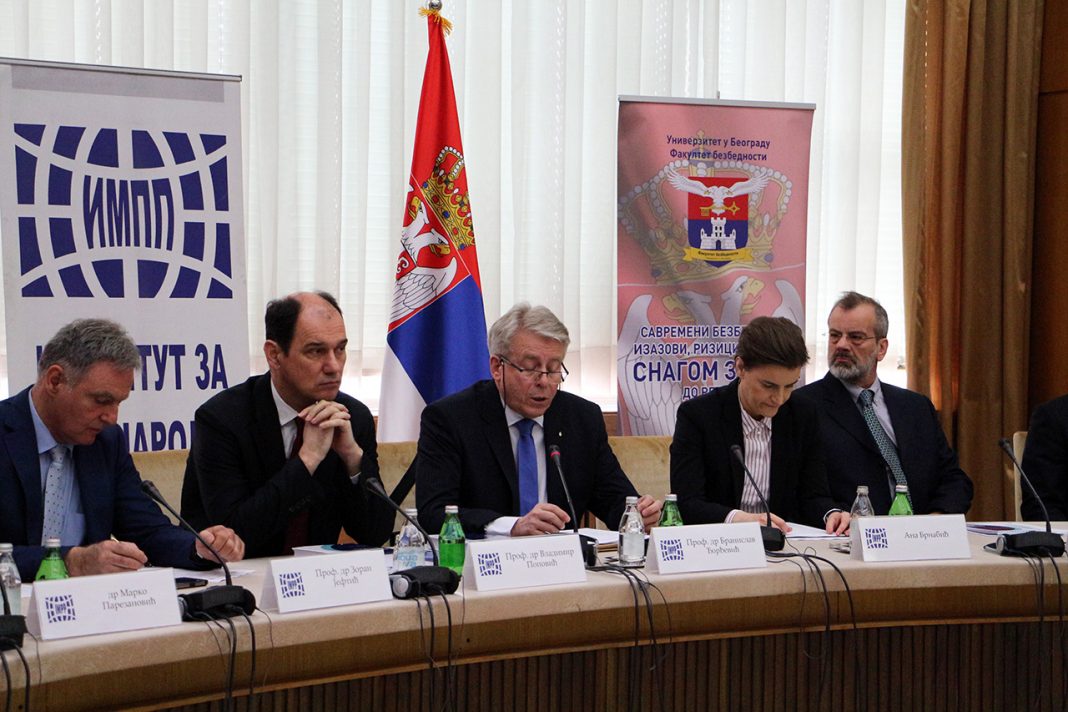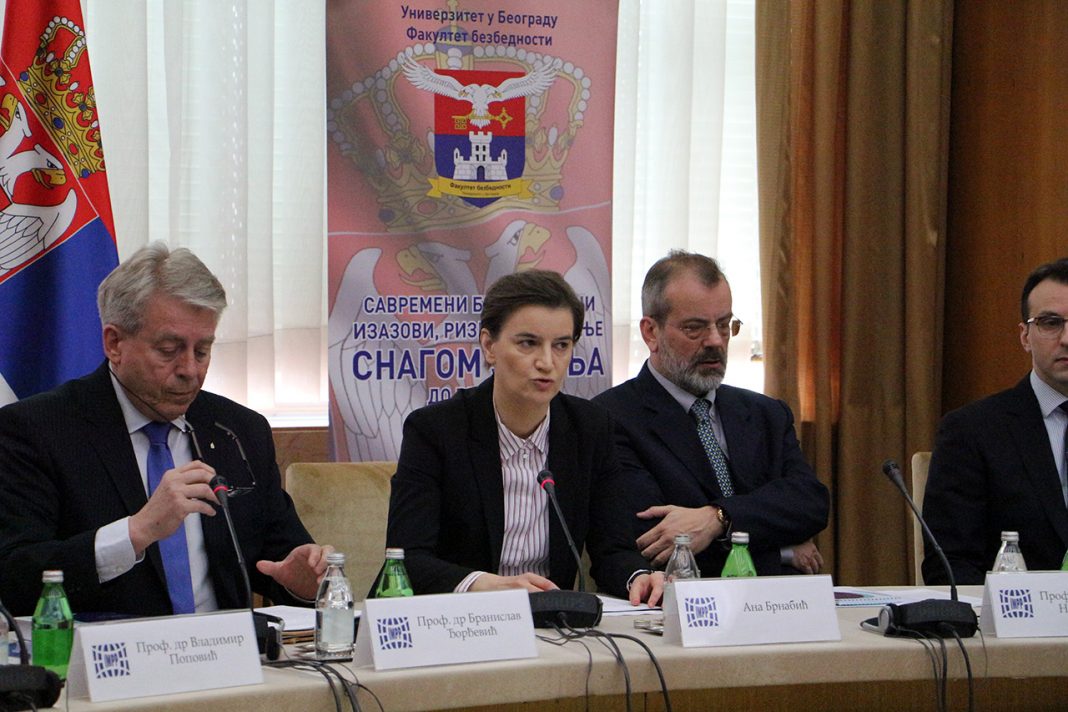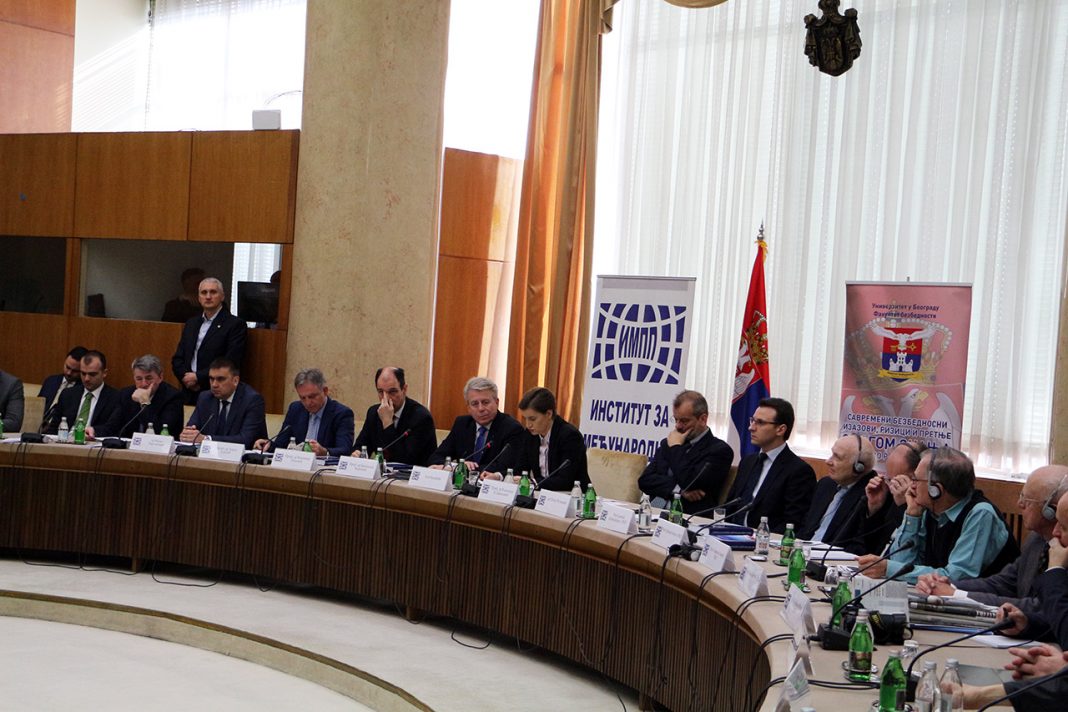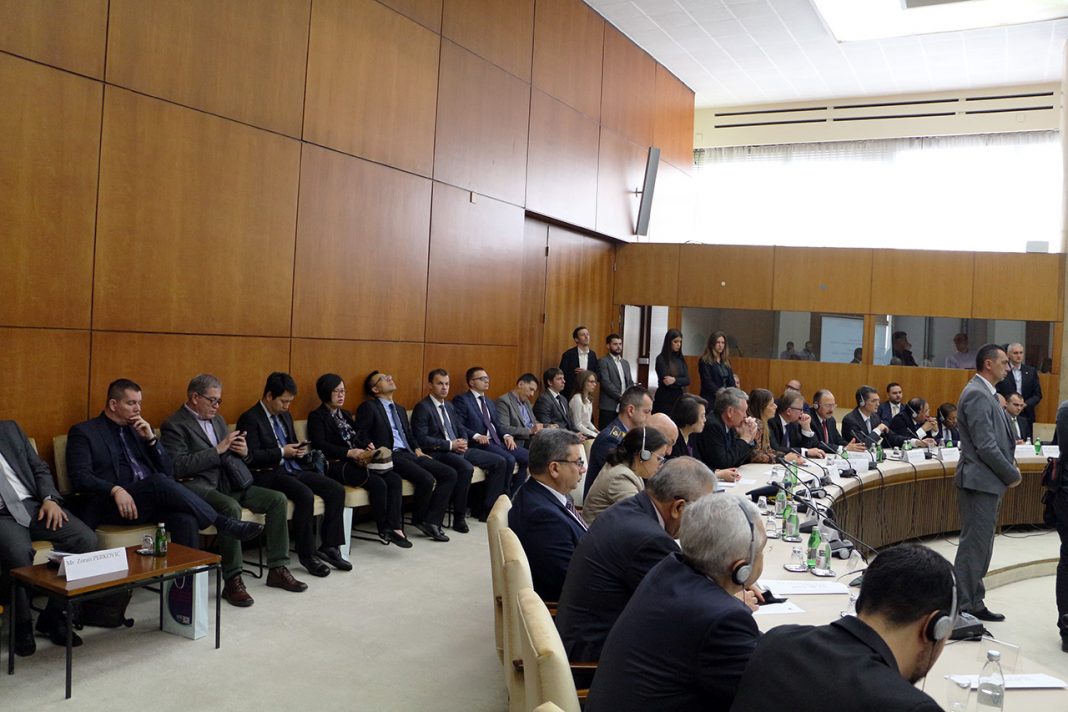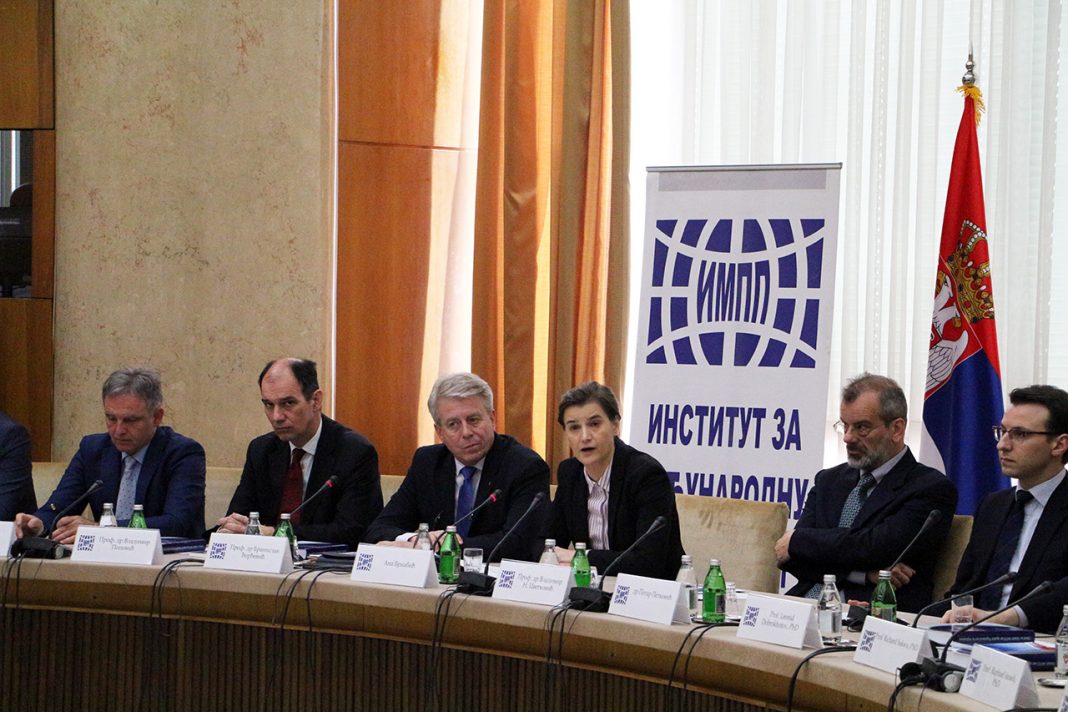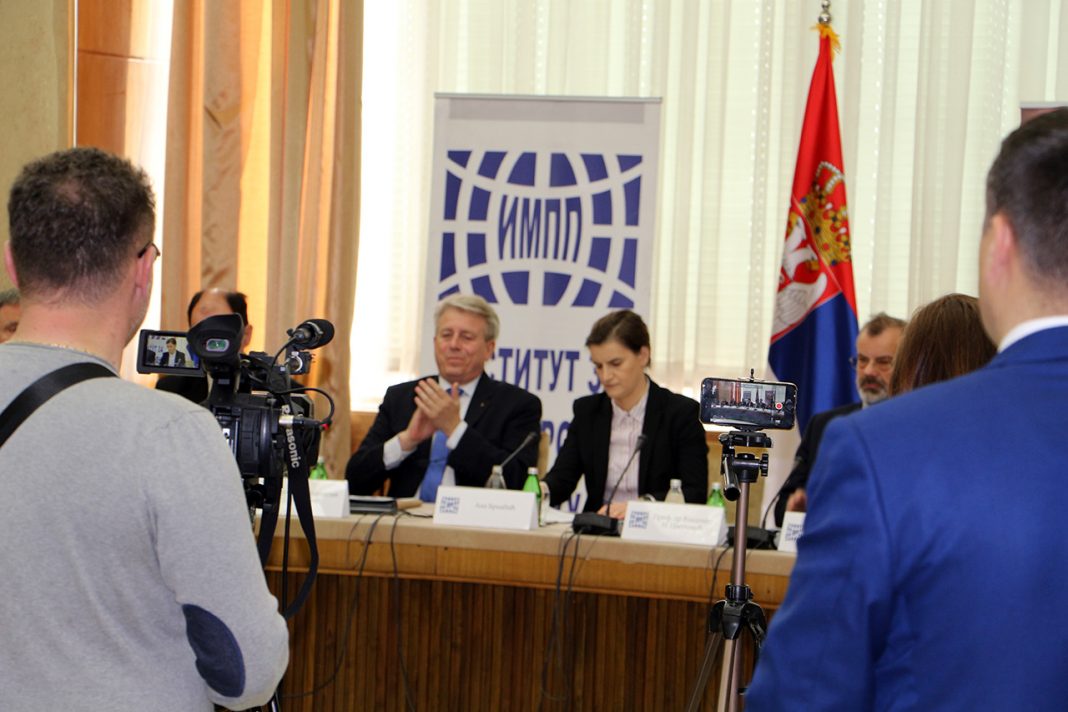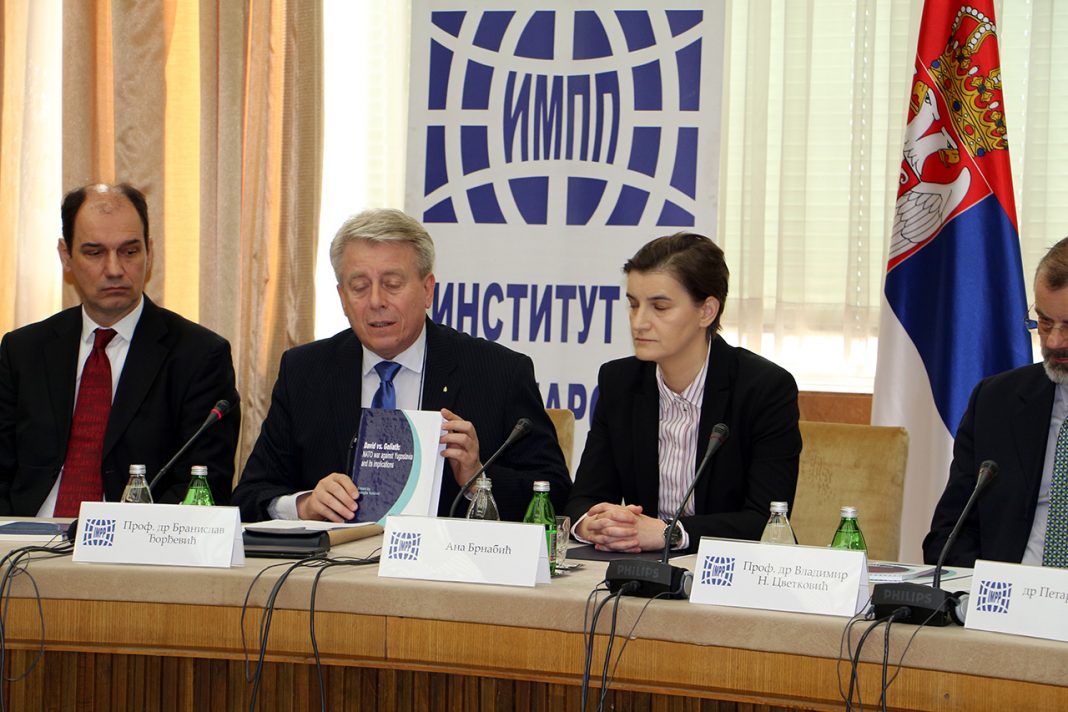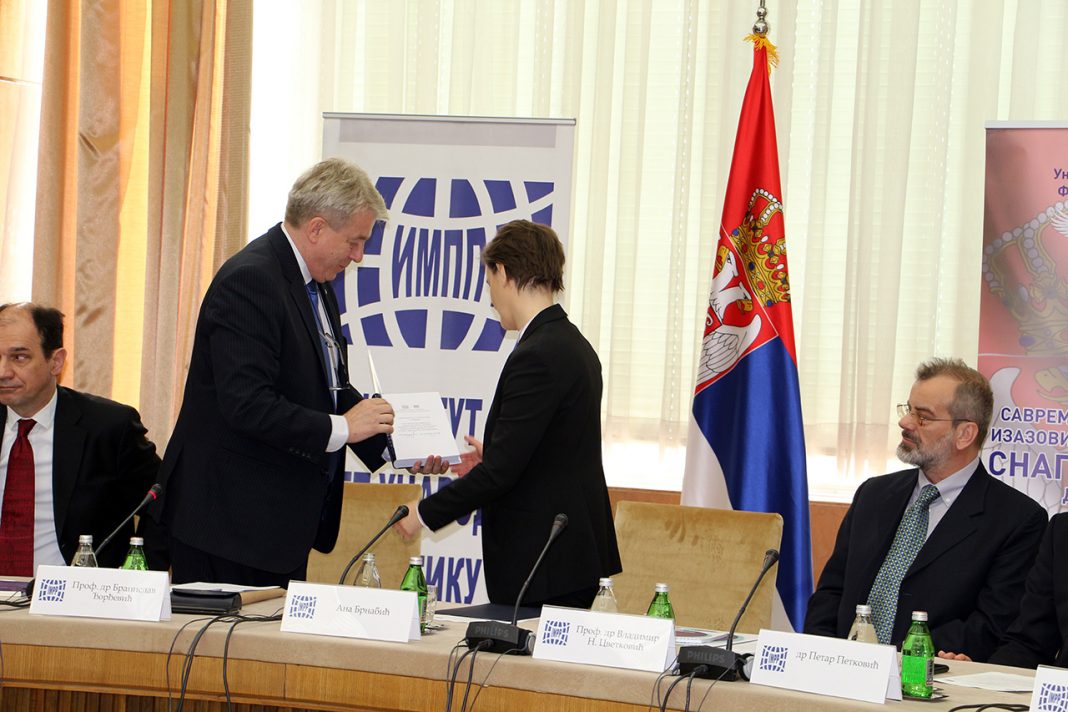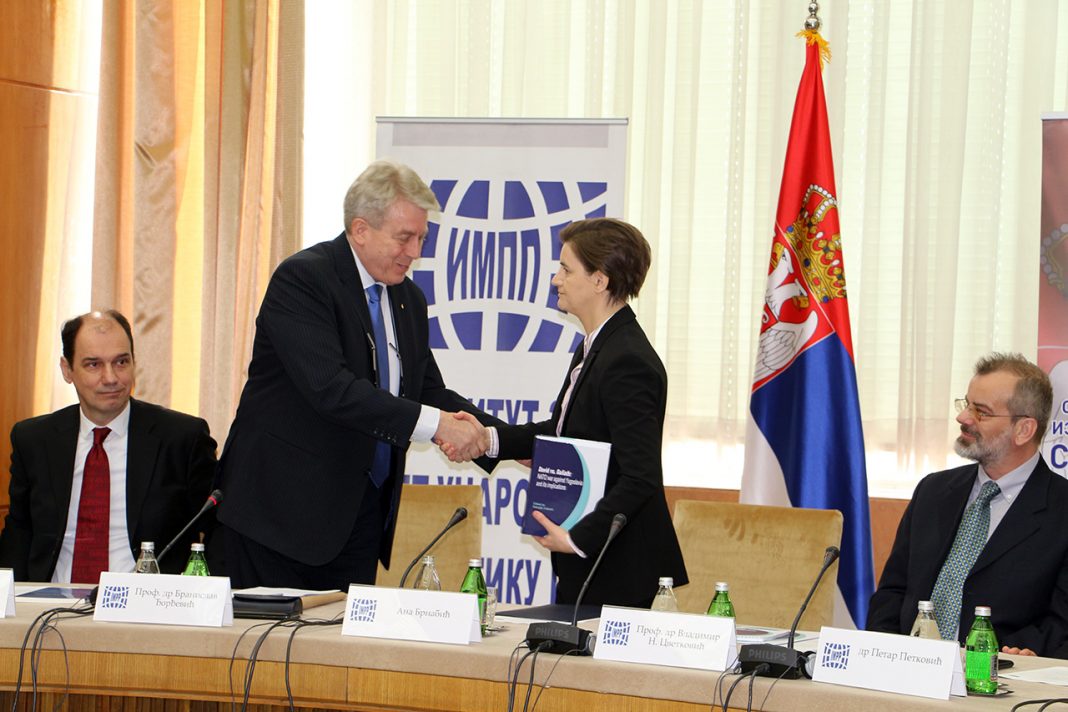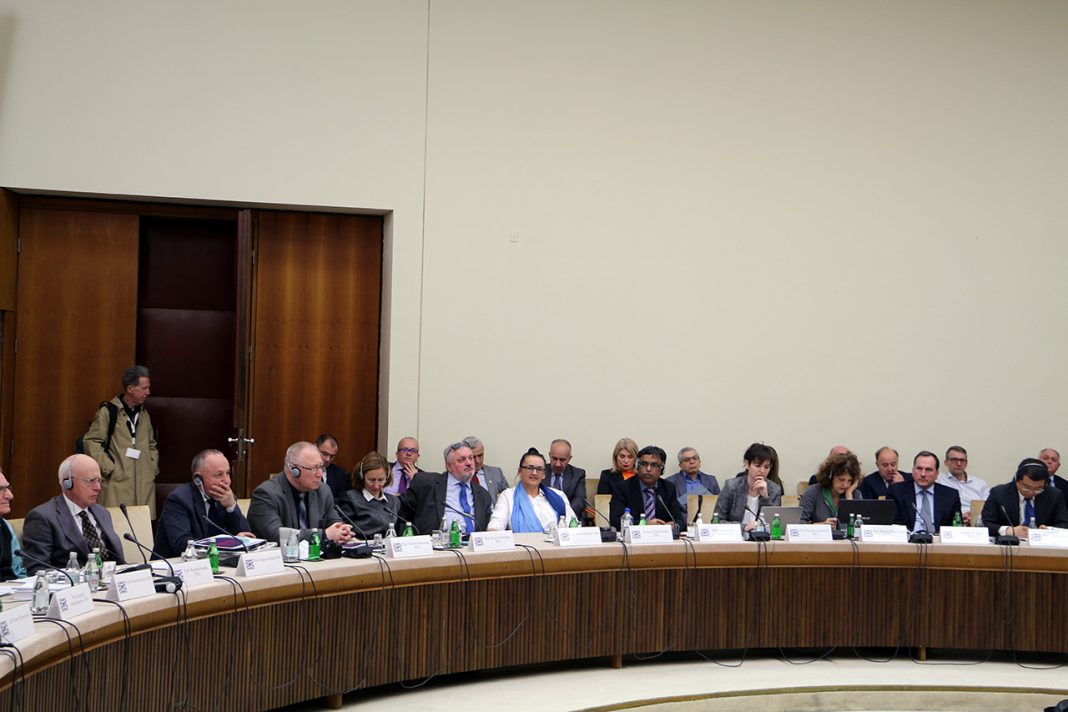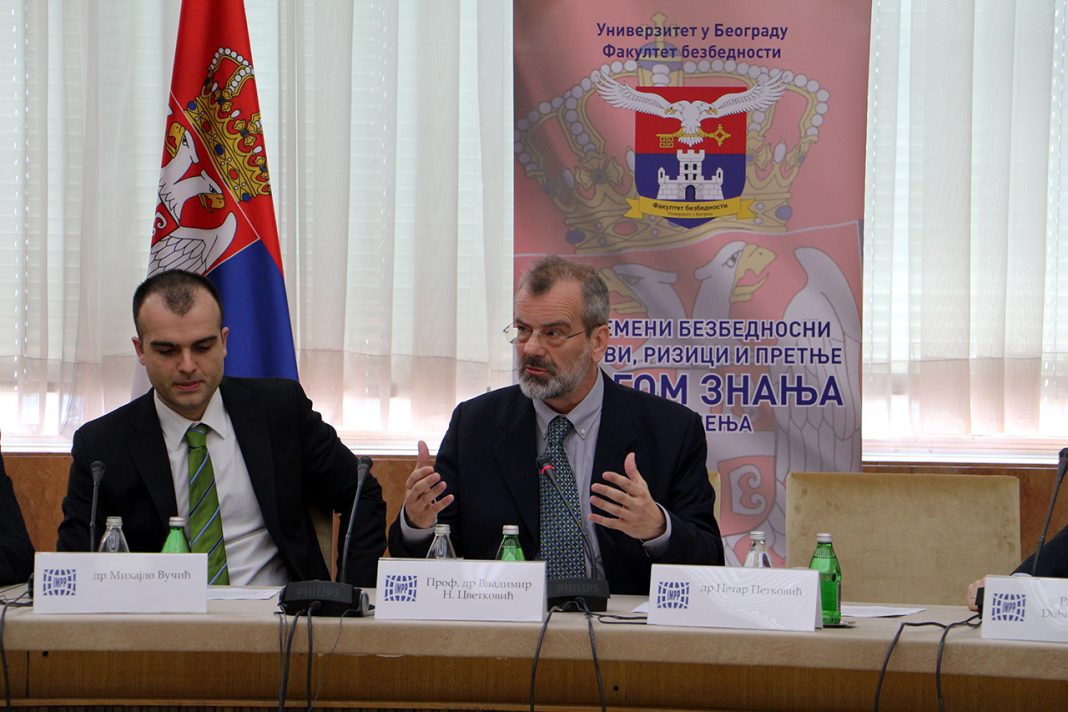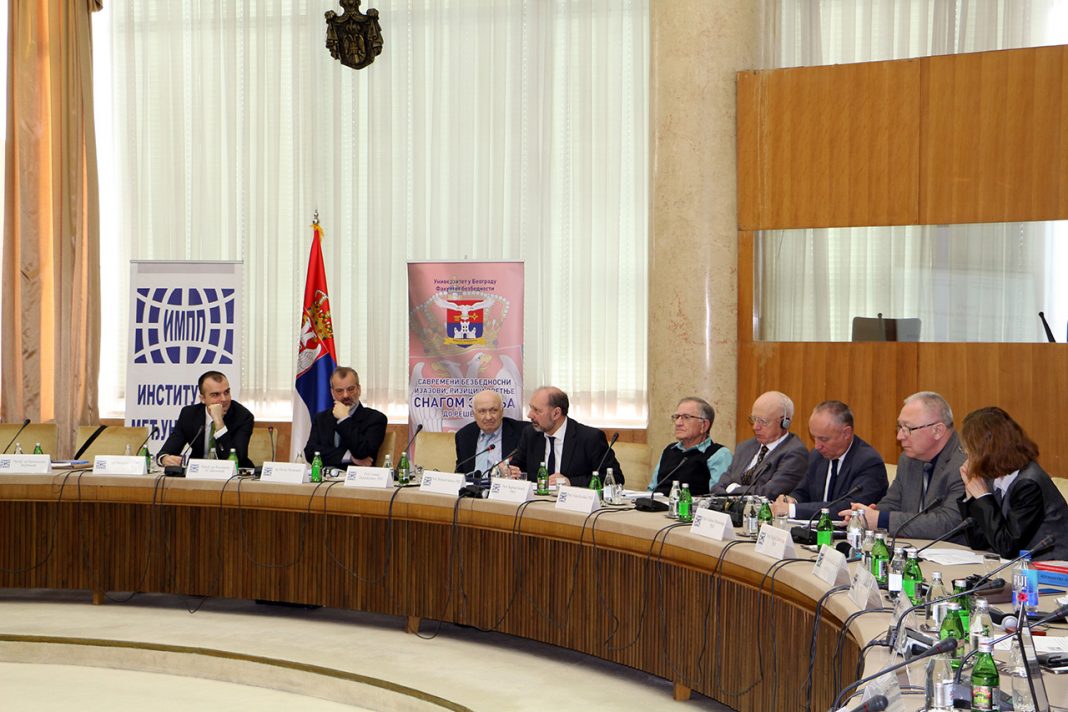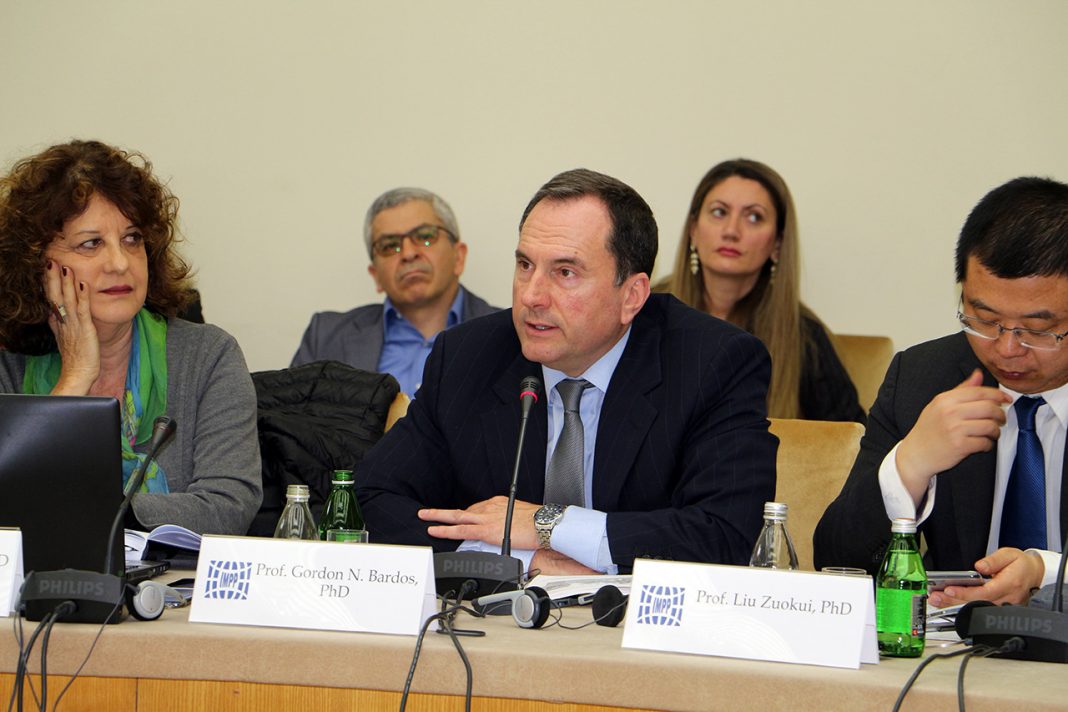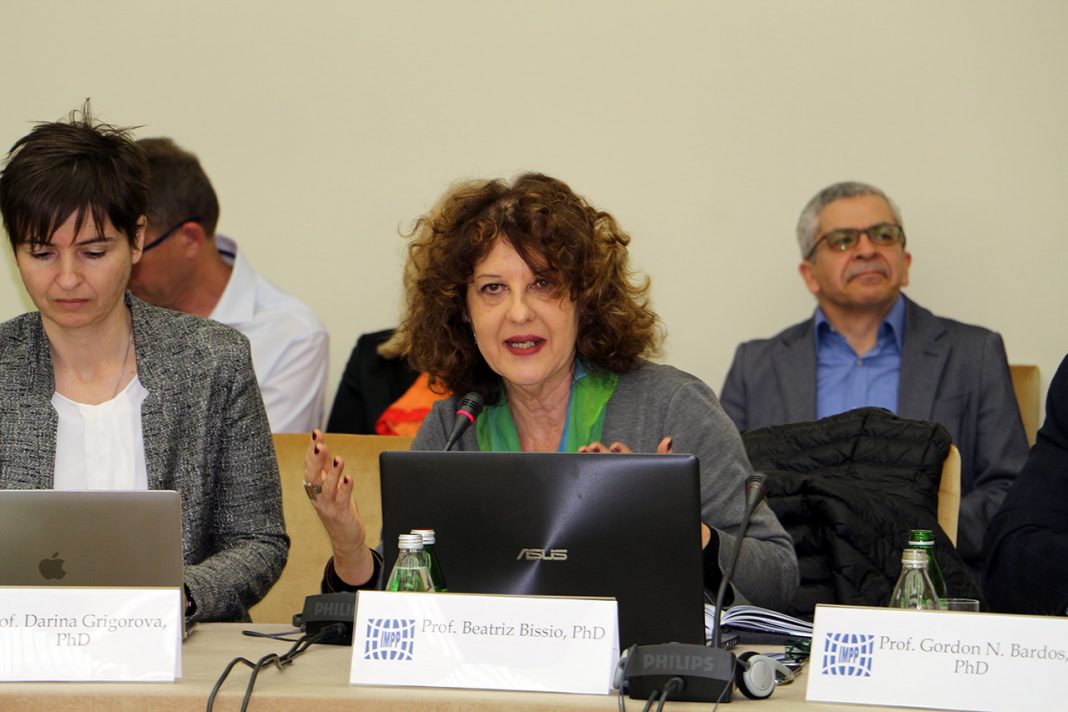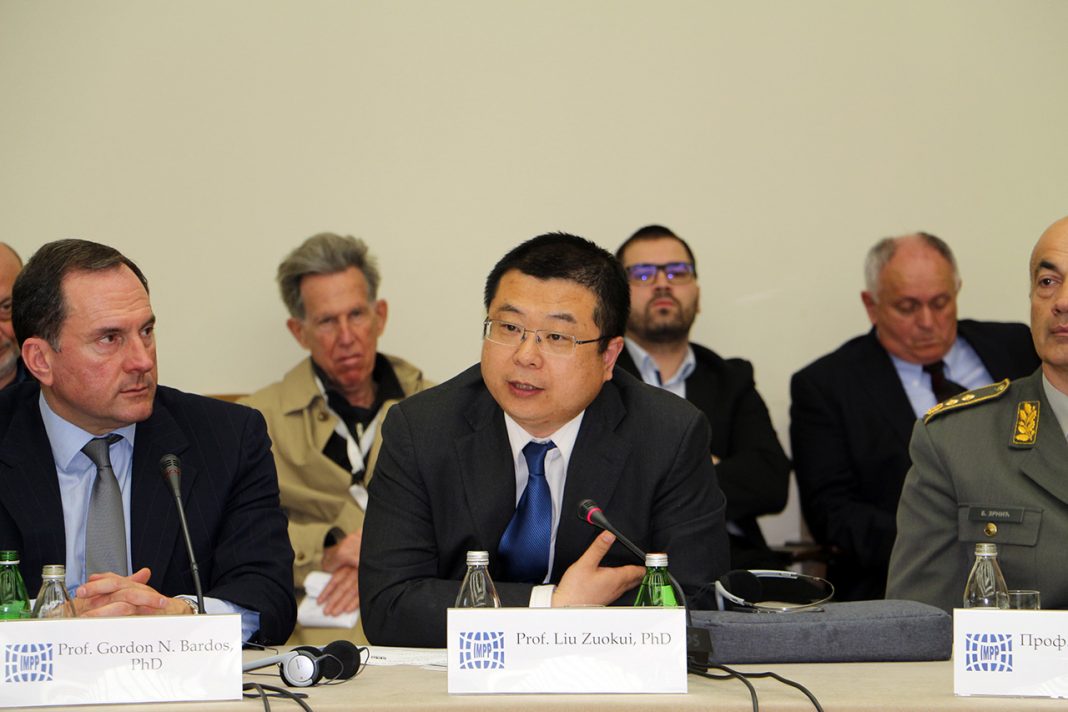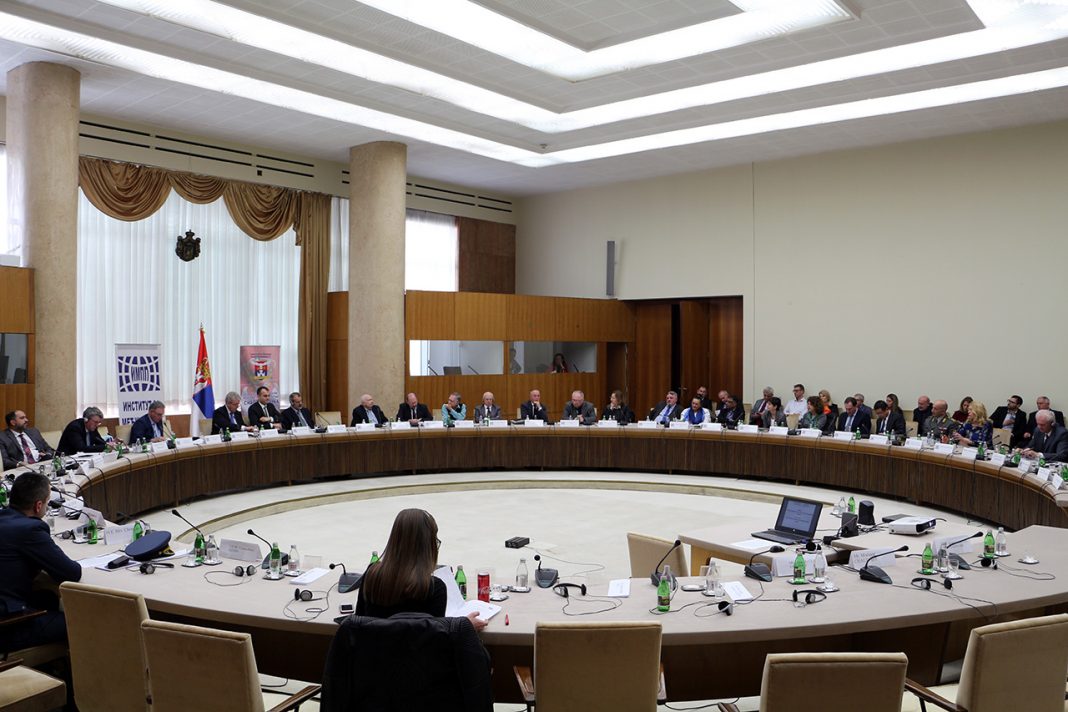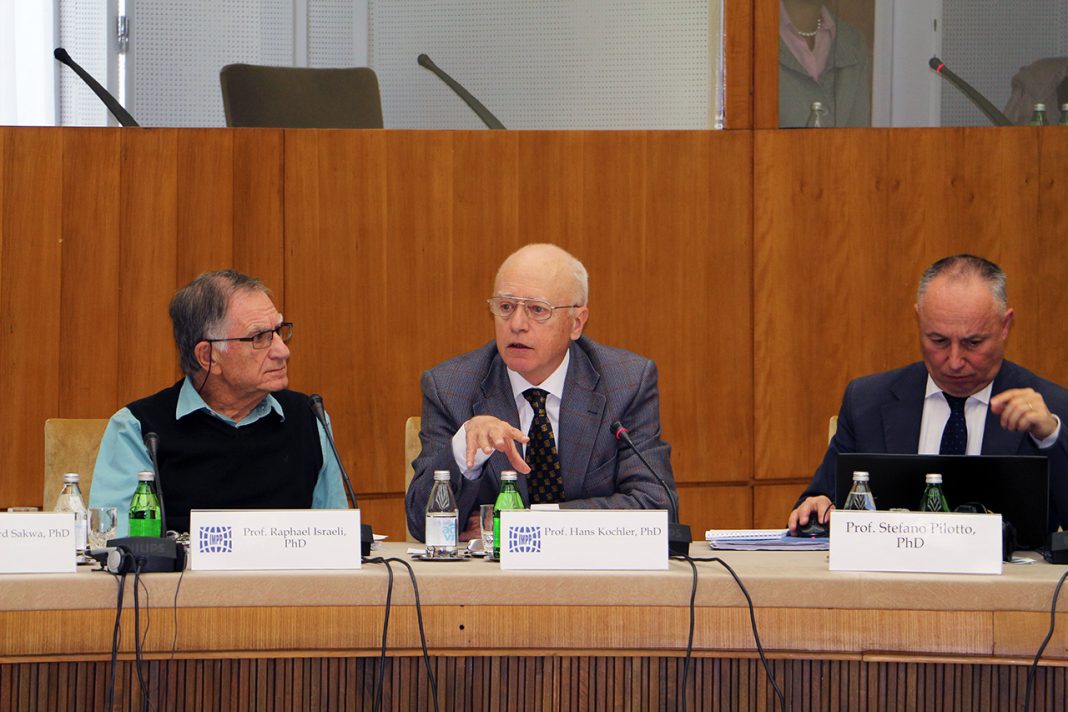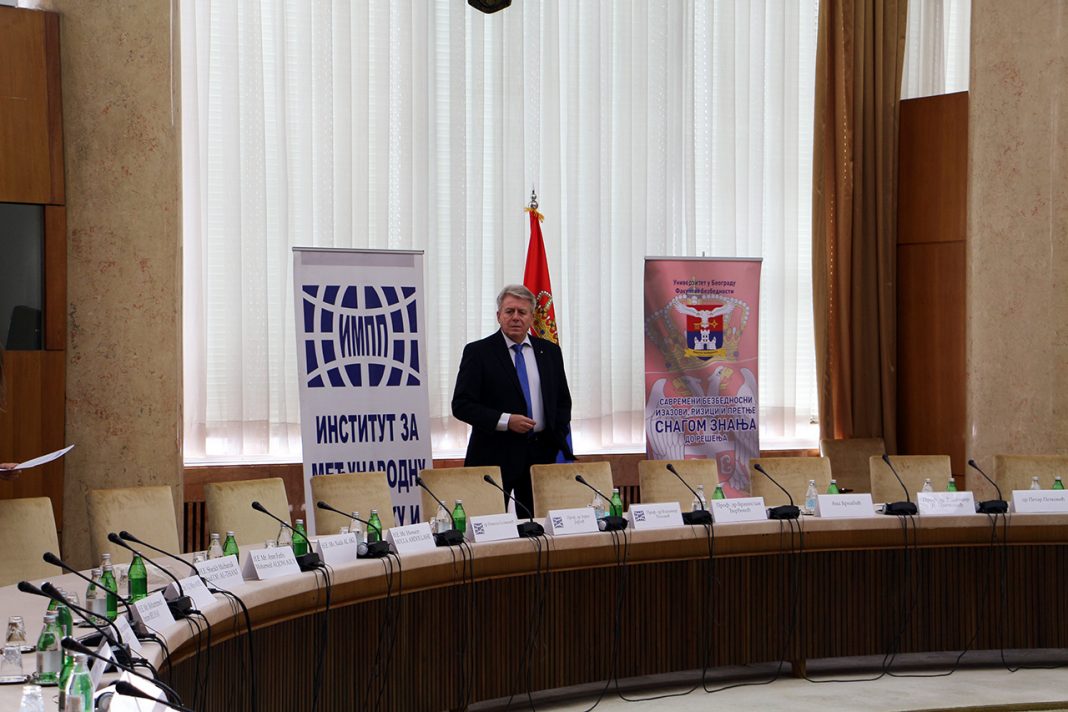Institute of International Politics and Economics and Faculty of Security Studies, University of Belgrade, organised international conference “NATO aggression on FR Yugoslavia: 20 years later”. Eighteen participants from 14 states presented their research papers at the conference, which was opened by the Prime Minister of the Republic of Serbia, Ms. Ana Brnabić. Besides presenters, the conference gathered more than one hundred guests, including representatives of the diplomatic corpse, the representatives of Serbian Government and public institutions, as well as scholars and academicians.
The first panel was dedicated to the analysis of the 1999 NATO aggression from the perspective of International Relations. Dr. Gordon Bardoš discussed the context of the permanent global war led by the United States in the decade after the NATO aggression against FR Yugoslavia. With more than 600 military bases in 70 countries around the world, USA continued with military engagements due to the activities of “dysfunctional foreign policy elite” privileged advocates of permanent military and non-military interventions. Non-military interventions relate specifically to American interference in electoral processes around the world, with 81 cases in the period 1946–2000, according to Bardoš. Professor Richard Sakwa questioned the purpose of NATO and analysed the transnational discourse created under the presidency of Donald Tramp. To India, Professor Ramachandra Byrappa claimed, the bombing of the FR of Yugoslavia in 1999 was a tectonic movement in the understanding of international relations. After the collapse of the Soviet Union and the financial crisis of the 1990s, the 1999 NATO aggression against a sovereign state in Europe urged India to leave the comfort zone and start developing defensive capabilities in the world of American desire for global domination.
In the second panel, presenters dealt with the problems of the legality and legitimacy of the 1999 NATO aggression with a reference to international law. Professor Hans Kochler examined the dysfunctionality of international institutions and the lack of punishment mechanisms for implementing illegal acts of aggression. The concept of “humanitarian intervention” is completely unjustified from the aspect of international law, but it was successfully used as a means of legitimisation of the act of aggression. Professor Vladan Jončić analysed the collapsing the United Nations’ system of collective security and violations of international law by the United States and NATO. A significant number of ius cogens norms of international law were violated, and most importantly, NATO committed a crime against peace and a crime against humanity. By using prohibited methods of warfare, NATO also violated the norms of humanitarian law and consequently knocked down the entire system of international law. Professor Boris Krivokapić added that the norms of the states aggressors in national legislation systems were also violated, as well as the provisions of the legal acts on which the NATO was established.
The last panel discussed the security implications and regional relations after the 1999 NATO aggression. Professor Darina Grigorova emphasized that the geopolitical clash between Russia and the West has continued in the Balkans since 1999. Russia may have a greater influence in the Balkans, but only if it transforms the doctrine of the “Russkiy mir” which is not oriented to pan-Slavism. According to Professor Valeriu Mosneaga, Moldova’s experience regarding NATO may contribute to further development of the Serbian permanent neutrality policy, although Moldova had no armed conflict with NATO. The last presentation reviewed the negative effects of NATO aggression in the economic, ecological and health field of expertise. Professor Bojan Dimitrijević stressed that the direct and indirect damage of the 1999 aggression is estimated at about 30 billion dollars, but the long-term environmental and human health damage reaches 300 billion dollars.
All participants agreed that the 1999 NATO aggression was an illegal and illegitimate act aimed at justifying the new mission of this military alliance that lost its purpose after the end of the Cold War. Another conclusion refers to the global character of the effects of the 1999 NATO aggression. The indisputable injustice of a military attack on a sovereign state has caused unexpected global political consequences. The new challengers to the US aspiration for world hegemony were precisely born after the NATO aggression. The tragic events in 1999 did not only influence the political, economic and security situation in the Balkans, but also determined the reshaping of power politics in the global arena.


